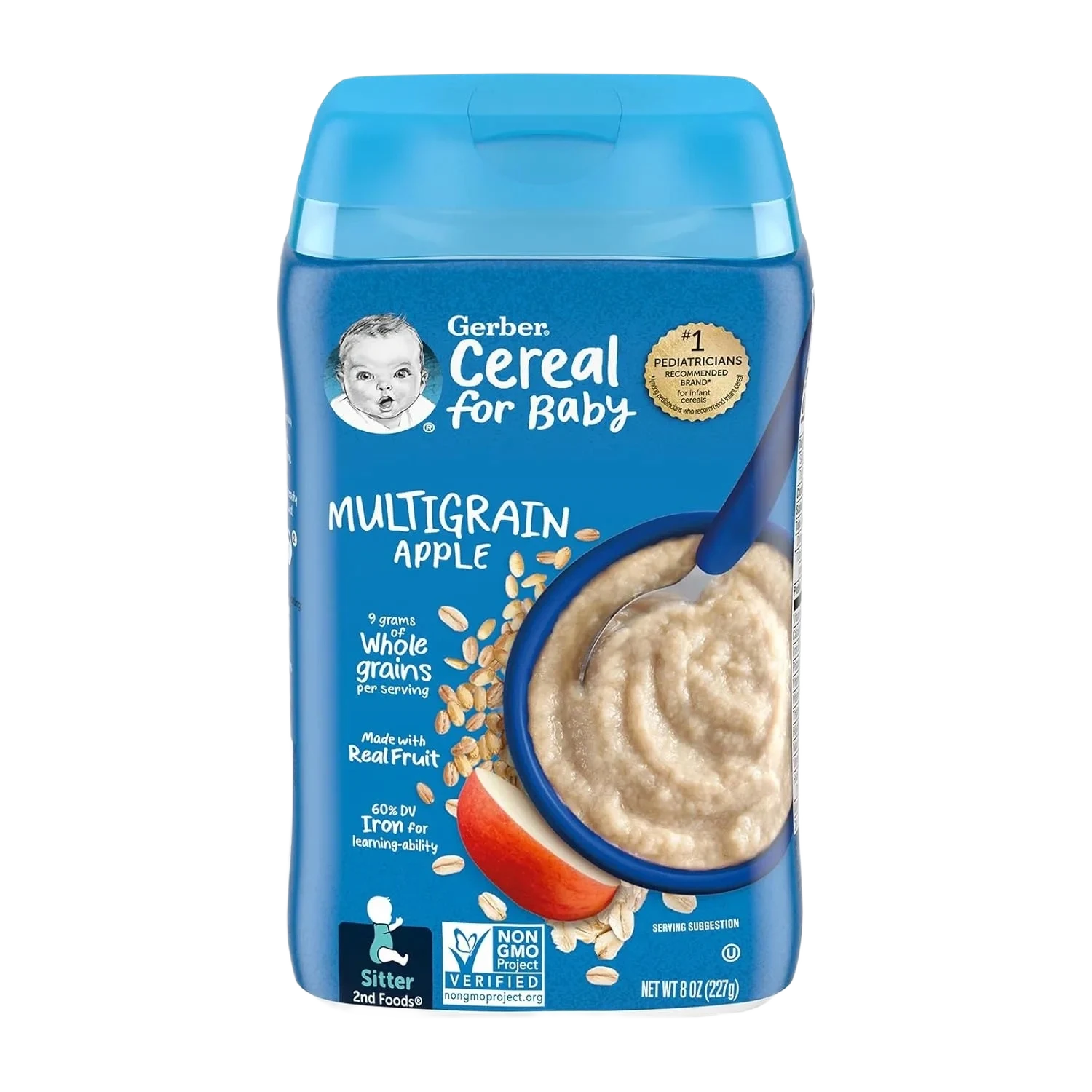Gerber Cereal for Baby MULTIGRAIN APPLE
baby food • For 6-12 month old babies • Consumable 🍝
Product Images
Product Photo

Tap to enlarge
Ingredient List

Tap to enlarge
Can older babies eat Gerber Cereal for Baby MULTIGRAIN APPLE?
Check for Different Age (6 available)
Ingredients Analysis (21 found)















Common Questions About Gerber Cereal for Baby MULTIGRAIN APPLE
Safe for older babies? Gerber Cereal for Baby MULTIGRAIN APPLE
Yes, Gerber Cereal for Baby MULTIGRAIN APPLE is generally considered safe for 6-12 month old babies based on ingredient analysis.
What ingredients should I watch out for?
We analyzed 21 ingredients in Gerber Cereal for Baby MULTIGRAIN APPLE. 2 caution. Check the detailed analysis above for specific concerns.
Is this appropriate for older babies to eating baby food?
The appropriate age depends on the specific ingredients. This analysis is for 6-12 month old babies. Use the age selector above to check other ages.
⚠️ Important Disclaimers
Product Recognition: Product names are identified programatically and may be incorrect. Always verify product identity yourself.
Safety Analysis: Evaluations are for research only - consult pediatricians for medical decisions. Do not rely solely on this analysis.
No Guarantees: Results may be incomplete or inaccurate. Do not rely solely on this analysis.